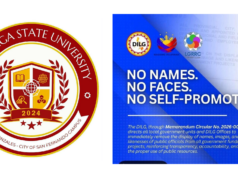TARLAC CITY – Indonesian officials, including a mayor, visited the presidential home province of Tarlac on Wednesday to study what was described as a reliable health care program of Gov. Victor Yap anchored on the Philippine Health Insurance Corporation (PhilHealth).
Yap welcomed at his office the Indonesian delegation led by Mayor Dadang Naser of Bandung, West Java province and Dr. Fahmi Idris, member of the National Social Security Council (NSSC) and Indonesian Medical Association.
Region III-A Branch Manager Arsenia Torres, who accompanied the 10-man group, said the NSSC is the counterpart of the PhilHealth in Indonesia.
The delegation said they had wanted to study health program of Tarlac in partnership with PhilHealth.
“We want to apply it in Indonesia. It is effective here,” said Dr. TB Rachmat Sentika, senior adviser to The Minister of Coordinating Ministry for People’s Welfare.
For his part, Yap said that aside from the PhilHealth program, he had tapped Tarlac’s 18 mayors to help him “properly handle” the health care project of the province with some 1.3 million residents.
The two-term governor stressed that they spend more when helping non-PhilHealth members in paying their hospital bills and expenses.
“It’s really hard to collect from the poor. So we really need PhilHealth,” he said.
Yap disclosed that at least 65 percent of the Tarlac residents are covered by PhilHealth.
“We have a long way to go. But 10 years ago, only a fraction or 3,000 people are covered by PhilHealth,” Yap said.
Pampanga and Bulacan have the most number of PhhilHealth members in Central Luzon. But Torres said “Yap is supportive to the affordable health care insurance.” Bulacan has 813,382 PhilHealth members as of December, while Pampanga has 736, 484.
The other provinces and their respective number of PhilHealth members are: Tarlac, 416, 852; Bataan, 244, 427; Zambales, 233, 501; Aurora, 51,735; Nueva Ecija, 423,474.
Torres handles Pampanga, Zambales, Tarlac and Bataan.
PhilHealth Chief Executive Officer Eduardo Banzon stressed that the country’s 102 million population should be covered by the government’s National Health Insurance Program (NHIP).
In the latest PhilHealth data bulletin, 28.5 million are registered members and 79.44 million are enrolled beneficiaries, or about 80 percent of the country’s total population.
The members whose children are aged 20 years and below are covered by the health insurance.




